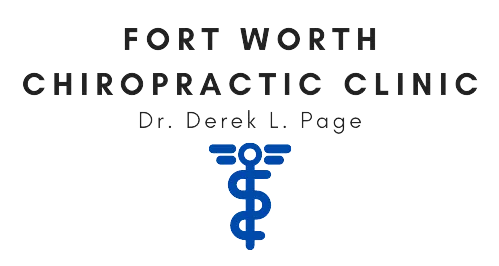As a chiropractor I am often asked “what causes sciatic nerve pain?”
I wish that there was an easy answer to explain sciatic nerve pain (sciatica) but there just isn’t.
It is for that reason, at the Fort Worth Chiropractic Clinic, we offer a free consultation so that you can discuss your condition with Dr. Page.
I can’t recall the last time that someone came into my office and said “I feel great, but I want to feel better!” In fact, that has never happened. The reality is that people come to my office primarily with some type of pain. I frequently have patients come in to my office complaining of lower back pain radiating into one leg. The clinical term for this condition is Sciatica. In discussing a patients’ condition, it is very important to begin with determining several things about their pain, such as:
How long have you had this pain?
Where on your leg does it hurt?
Is this a new condition or something you have had before?
What were you doing when the sciatic nerve pain began?
Is the pain constant or does it come and go?
Is your pain worse in the mornings or as the day goes on?
Have you seen any other doctors and/or has medication helped?
Have you used heat or ice and did it help, or make things worse?
These questions, among others, are very important in determining the cause of that patients’ pain more important in recommending proper treatment of this very painful condition.
The sciatic nerve is the largest, and longest motor nerve in the body. It is about the size of your thumb and goes from your lower back to your toes. It originates from several smaller branches that exit the lumbar spine (lower back vertebrae) and merge together as the nerves pass through the pelvis and into the leg. The anatomy is important in that while the pain is in the leg, it is most often coming from pressure on the sciatic nerve roots in the lower back. The cause of this pressure can be due to several things including, but not limited to, swelling related to misalignment of the vertebrae, degenerative spinal joint changes related to previous or repetitive injuries, a bulging or herniated disc, trauma due to falls or accidents or pathology.
So what does this have to do with your sciatic nerve pain? All injured joints swell, whether it is a sprained ankle or an injured back. When swelling occurs at the vertebral level, it has nowhere to go and “squeezes” the nerve root much like a blood pressure cuff squeezes your arm. This pressure on the nerve causes inflammation and pain along the distribution of that nerve.
It is important to understand that the human body is a great healer, but it can’t realign anything. Broken bones and bad cuts heal, but they heal more effectively, and have better function, when they are casted or sutured to try to restore their pre-accident alignments. The spine is no different. When it becomes misaligned, spinal joints become inflamed and swollen, causing pressure on spinal nerves exiting the spinal column. This is why many patients feel somewhat better when they lie down or sit for a period and more symptomatic when they try to get up. With less weight on the spine, vertebrae are allowed to push apart, and then compress the soft tissues (spinal nerves) more when they stand. It may be necessary for the chiropractor to take x-rays to evaluate the alignment of the spine and to determine the presence of degenerative joint changes which can compound even minor injuries and rule out pathology.
Although patients often relate that “I must have slept wrong”, it is frequently much more complicated.
Call the Fort Worth Chiropractic Clinic today and schedule your free consultation with Dr. Page to determine if chiropractic care is right for you.

